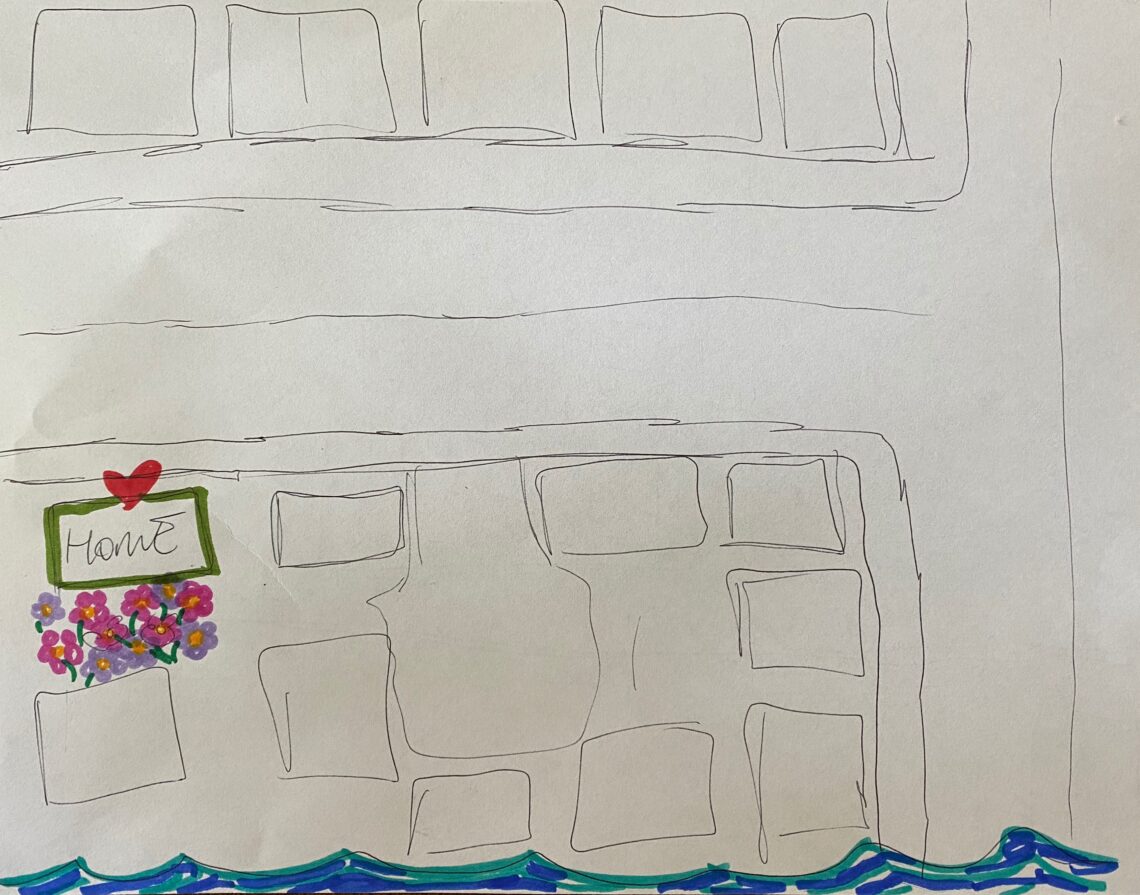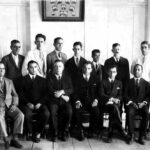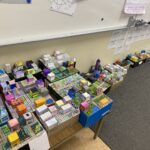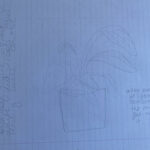This is the map I created of my neighbourhood. I decided this could serve as good evidence of participatory citizenship, as neighbourhoods are perhaps the most obvious form of physical community. However, in this instance my drawing of my neighbourhood serves as more of a symbol. As you can see, my yard is filled with flowers, and my home feels warm, safe, and full of love. I live just half a block from Dallas Road in James Bay, so the ocean is often heard, smelt and felt in the air. This is very grounding. Being grounded is essential as a foundation for doing personal reflective work, as it will inevitably be unnerving and uncomfortable. Once we have a good foundation of self-awareness, or at least a desire to increase it, then we are better able to create strong relationships with others.
When we have relationships with people, we are happy to engage with them and to do activities. As our empathy and care grows, we start to see ourselves in others and others in ourselves. This understanding should hopefully make us kinder, and more full of passion and righteous indignation when those around us are treated unjustly, either structurally or directly. Essentially, it all starts at home, and within ourselves. When we are happy here, we can connect.
Voting, volunteering, and participating in one’s community (be it your actual neighbourhood or other) will set the stage for engaging with social justice issues. However, I would even say that engaging with social justice issues is best done through participatory citizenship in one’s communities.
In this learning process, I started to think about how I don’t know many of my neighbours by name. I certainly prioritize trying to be as kind and friendly as I can be, but there is something very valid about how names can strengthen a relationship. I have already really considered how important it is to know students names as well (and I am skilled at learning names quickly), but perhaps this demonstrates the importance of introducing myself to everyone involved with the school – family members, other staff, etc. It is almost too easy to “find your own people” and keep it to that. However, we need to be able to spread our branches a bit.





